Libya
The European Union's high representative Josep Borrell held talks in Liba with the warring sides in a bid to find a solution to end the conflict.
Chaos erupted after the 2011 NATO-backed uprising that toppled and killed longtime ruler Muammar Gaddafi.
Since 2014, the country has been split between the rival factions: the Tripoli based Government of National Accord (GNA) and General Khalifa Hafta, who controls the east.
Both sides are backed by armed groups and foreign governments.
Fayez Sarraj, head of the GNA, announced a cease-fire on 21 August and called for demilitarising the key city of Sirte and the nearby area of Jufra, which would mean the withdrawal of forces of military commander Khalifa Hifter.
Previous efforts to secure lasting cease-fires have stalled.
The two sides also agreed on the need of an "effective" international support to the political solution to Libya's conflict, a statement said.
Hafter's forces launched an offensive in April 2019 trying to capture Tripoli.
But his campaign collapsed in June when the Tripoli-allied militias, with heavy Turkish support, gained the upper hand, driving his forces from the outskirts of the city and other western towns.
The two sides also agreed on the need of an "effective" international support to the political solution to Libya's conflict, a statement said.
But that may prove difficult with countries split on which side they support.
Turkey, Italy and Qatar are among those who side with the GNA.
Russia, Egypt and the United Arab Emirates back General Haftar.




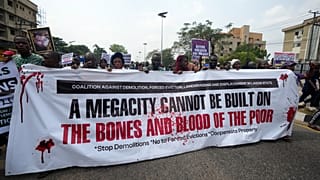
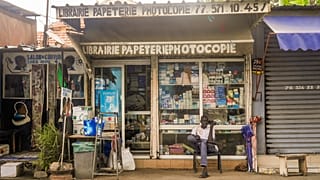
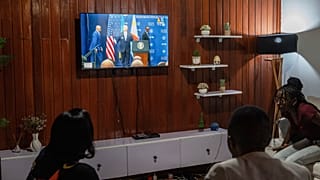
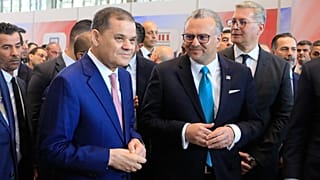
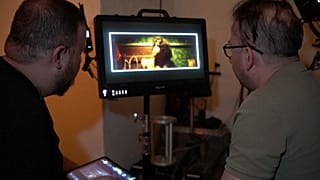
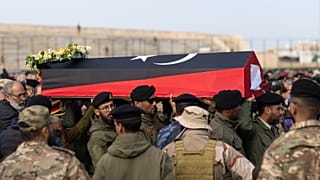
01:00
Japanese and Italian PMs discuss defence and trade in Tokyo on Meloni's birthday
01:00
Rome opens two new Metro C stations, showcasing ancient ruins near Colosseum
01:00
Zelenskyy meets Pope Leo XIV and PM Meloni in Italy visit
01:00
Italy swimmer Damiano Lestingi proposes during Olympic Flame event
02:19
Milan exhibition highlights 3,000 years of Olympic history
00:46
Final preparations underway with 100 days to Winter Olympics in Milano-Cortina